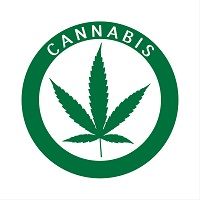New Studies on Cannabis and Epilepsy
The potential uses of cannabis in treating epilepsy have gotten a lot of press but so far little scientific research. Three studies presented today at the American Epilepsy Society's meeting in Seattle represent an attempt to fill that gap. Their authors report on the use of marijuana and its derivative cannabidiol (CBD) in treating some forms of epilepsy.

The potential uses of cannabis in treating epilepsy have gotten a lot of press but so far little scientific research.
Three studies presented today at the American Epilepsy Society’s meeting in Seattle represent an attempt to fill that gap. Their authors report on the use of marijuana and its derivative cannabidiol (CBD) in treating some forms of epilepsy.
Researchers at Children’s Hospital Colorado and the University of Colorado looked at 58 children and teens with catastrophic forms of epilepsy who got treatment with cannabis. In a report that criticized clinicians’ (and families') apparent willingness to believe what they saw in media reports, Kevin Chapman, MD and colleagues found that there were adverse effects in 47% of patients, with 21% reporting an increase in seizures and one patient death.
Only a third of patients’ parents reported their child’s seizure had been reduced by 50% or more. Only 2 of 16 patients who had baseline EEGs prior to and during cannabis treatment showed any improvement, nor did the response rate change with various strains of cannabis.
The team thought it was significant that families who moved to Colorado to get legal access to the treatment were 3 times more likely to report a 50% reduction in their child’s seizures than parents who already lived in the state.
“This substantial gap between clinical observations and various anecdotal reports highlighted in the popular media underscores the desperate need shared by the entire epilepsy community for robust scientific evidence regarding the potential benefit and risks of marijuana in people with epilepsy,” Chapman said.
There was better news in a report on parents of children suffering infantile or LGS treated with CBD-enriched cannabis preparations. Researchers at the University of California in Los Angeles said 92% of parents of 53 children in the study reported seizures were reduced, including 13% who said seizures had stopped. The lead author was Raymond Zhou, a UCLA Infantile Spasms Project research associate.
A single-case study of a child with Doose Syndrome showed a 4-year-old boy whose parents found CBD treatment to try to help the patient’s multiple seizures continued to have at least 10 seizures a day. He was also getting valproic acid. But when the dosage of valproic acid was reduced, the child’s seizures gradually tapered off.
“We cannot recommend CBD treatment based on the limited evidence at this time,” said lead author Jeffery Gold, MD, PhD of Rady Children’s Hospital of San Diego. “Since the effect of CBD treatment on other medications is undetermined, we recommend that physicians work with families to determine if adjustments to other medications are necessary,” he said. Such families should be particularly watchful if those medications include valproic acid, he said.
Gold noted that he had suggested the family try a ketogenic diet but that they opted for CBD instead.